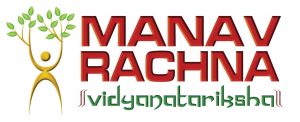`We do not inherit the Earth from our ancestors, we borrow it from our children.’
This is the fundamental premise that the Annual Projects at MRIS attempt to work with. Annual projects are developed around the United Nations Sustainable Development Goals(UNSDGs). UNSDGs represent the challenges that humanity faces as a whole towards its survival on the planet. As such, it is crucial that children, who are the major stakeholders in this endeavour, be aware of these challenges. The purpose of these projects is, therefore, to not only have an aware population, but one which is well- equipped with knowledge and know-how on how to tackle these issues as they grow up. The onus lies on them to find innovative and sustainable solutions to mankind’s challenges as defined in the UNSDGs. The endeavour at MRIS in this regard is to provide age-appropriate training to the children as part of their education.
Annual projects are year-long collaborative projects that involve children across multi-age and multi-grade groups to develop scientific skills in a systematic manner while working on various United Nations Sustainable Development Goals (UNSDGs). At MRIS Mohali, children use library resources as well as digital technology to collect information to execute sub-projects. They practice and apply life skills and learner skills while brainstorming, planning, organising, and executing the projects. Under this, we have the following projects lined up for our multigrade vertical groups of students:
- Clean water and sanitation.
- Life on Land.
- Affordable and Clean Energy.
- Decent Work and Economic Growth.
- Community Connect.
Under UNSDG 8, Decent Work and Economic Growth, children studied the Fashion Design Industry in a hands-on way and experienced the effort made by artisans in the industry. Under other UNSDGs, children undertook various projects to maximize greenery in personal living spaces in urban spaces. They learned the mechanics of applying agricultural techniques in limited areas, reused and recycled waste products creatively in homes and made new products from them. Children get to learn a host of things that will help them be more involved in their world by addressing the problems and crisis that loom in this age, and grow as proactive citizens. They set up Tower Gardens, Hoop Houses, Bottle farming and Tabletop gardens. The students harvested their own yield of organic tomatoes and brinjals.
They also constructed a vermicomposting pit, where the students used peels of vegetables and fruits from the Cafeteria and prepared compost, which they used in organic farming. School also launched an awareness campaign and initiated a petition against the use of plastic.
